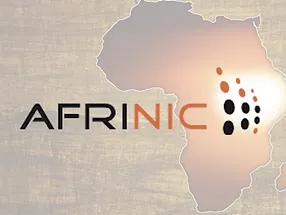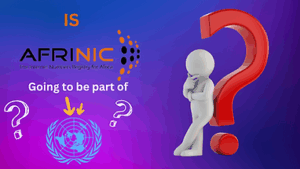The African Network Information Centre (AFRINIC) acts as the Regional Internet Registry (RIR) of Africa and the Indian Ocean region. It is one of five RIRs that administer internet number resources for their respective business areas.
There are other 4 RIRS that have the same function as AFRINIC:
APNIC – Asia-Pacific Network Information Center for the regions of East, South, and Southeast Asia, including Oceania.
ARIN – American Registry for Internet Numbers for Antarctica, the United States of America, Canada, and parts of the Caribbean.
LACNIC – Latin America and Caribbean Network Information Center for the regions of Latin America, a large portion of the Caribbean islands, and Mexico.
RIPE NCC – Réseaux IP Européens Network Coordination Center for the regions of Europe, Russia, West, and Central Asia.
However, what exactly does AFRINIC do? how does it function? what is its exact mission? In this guiding article, we answer every question you want to know about AFRINIC, but first, let’s explain what AFRINIC is.
What is AFRINIC?
AFRINIC, The African Network Information Centre is a membership-based nonprofit organization that operates under corporate Legal Frameworks in Mauritius. It observes and monitors the allocation of Internet number resources in the African service region. AFRINIC as The RIR of the region mainly focuses on the management and distribution of two types of resources:
●IP addresses
●Autonomous system numbers (ASNs)
AFRINIC areas of service
AFRINIC is the RIR for the African region as previously mentioned, every RIR has its service region in the world. the main role is to administer internet number resources in this region that the RIR is serving at. For example, the mission of AFRINIC is to perform this essential service to the African internet community. That includes all African countries and also the Indian Ocean region.
AFRINIC is also responsible for the IP address space of the following sub-regions of the overarching African region:
– Northern Africa – including Algeria, Egypt and Libya
– Western Africa – including Mali, Niger and Nigeria
– Central Africa – including Cameroon, Chad and the Democratic Republic of Congo
– Eastern Africa – including Ethiopia, Somalia and Tanzania
– Southern Africa – including Angola, Namibia and South Africa
– Indian Ocean region – including Madagascar and Mauritius .
AFRINIC, The African Network Information Centre is the Regional Internet Registry of the African continent. Therefore, its main function is to govern the internet number resource space for Africa and provide them with a stable and safe internet that allows growth to their business.
AFRINIC’s provides professional and efficient distribution of these resources to everyone in the African region. AFRINIC also aims to do two things for the African continent:
- AFRINIC is to support Internet technology usage and development.
- AFRINIC is to strengthen internet self-governance.
Moreover, it’s important to mention that the RIR administers both IPv4 and IPv6 addresses; however, only 6% of the global pool of resources is theirs to manage. Of those, only 2% are IPv4 addresses. The other resources it usually deals with are autonomous system numbers, the unique identifiers of every autonomous system.
AFRINIC as the Regional Internet Registry for Africa has around 2,000 members. They are primarily internet service providers (ISPs), governments, universities, data center providers, banks, and whoever is in need of internet number resources in the African region.
The African Network Information Centre “AFRINIC”, is similar to all other RIRs, it gets its internet number resources from IANA.
What is IANA?
IANA is the Internet Assigned Numbers Authority. It then re-allocates them to all AFRINIC members and everyone else from the African region that needs an address block or more.
Now, Let’s dive a bit deeper into AFRINIC’s history.
AFRINIC history
AFRINIC was created in 2004 when the Internet Corporation for Assigned Names and Numbers (ICANN) realized it is time for a regional registry for AFRICA, “AFRINIC”, the last one to be formed.
Before this, APNIC, RIPE NCC, and ARIN allocated internet number resources to the internet users and the community of Africa and the Indian Ocean region.
AFRINIC became an official RIR in April 2005. After that, it quickly began a membership program.
The program stated that as long as they qualify, individuals and organizations can apply for this membership. The new thing to the RIR system is something that AFRINIC introduced at the time, which was that everyone can participate because AFRINIC has an open policy development process.
AFRINIC holds Public Policy Meetings for open policy discussions two times a year. The Regional Internet Registry also participates in the organization of the Africa Internet Summit. AFRINIC Board of Directors is responsible for making decisions based on these bylaws.
In total, nine individuals are part of this board at any given time. Six members are elected to serve each sub-region of the continent, two are elected to serve based on their competency, and the remaining member is the Chief Executive Officer.
AFRINIC Quality Policy
- Understand the needs and expectations of our stakeholders through constant communication and feedback mechanisms.
- Continuously operate an effective Internet Number Resources registry transparently and inclusively that ensures financial sustainability.
- Provide information, training and supportive services to assist the community in managing the Internet Number Resources and building a resilient and secured Internet Infrastructure in Africa.
- Enable customer success by providing business-grade solutions that genuinely meet their needs.
- Develop an attitude of teamwork and quality assurance in our day-to-day operations.
- Continuously comply with the requirements of ISO 9001:2015, including statutory and regulatory requirements, and improve the effectiveness of our QMS.
- Regularly report to our community on our QMS performance and continuously seek their feedback.
- Continuously ensure that our services fit into the global context of Number Registry services.
- Execute our mission with an empowered and agile team that delivers increasing value to our customers.
Conclusion
In conclusion, the African Network Information Centre (AFRINIC) with the other RIRs are what makes the internet in the world function the way that it does.
Its main role involves the management and allocation of IP addresses and autonomous system numbers to its members and the African community at large.





Pingback: AFRINIC's Role in Internet Governance - NRS